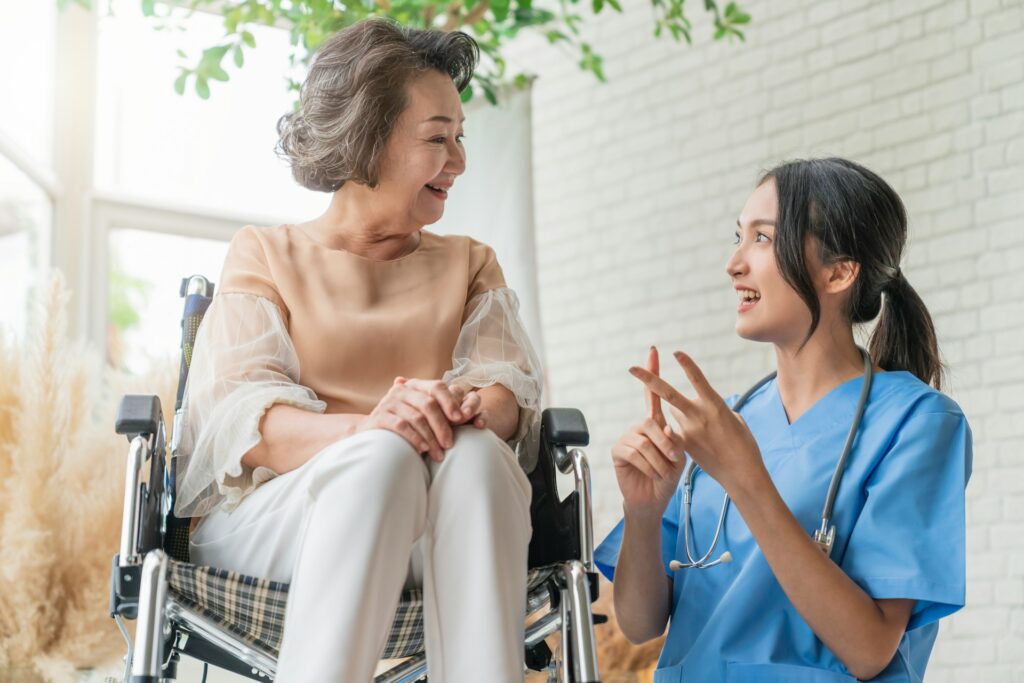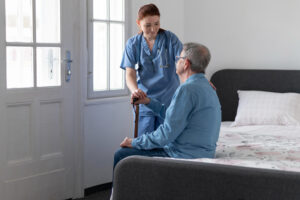Caring for a loved one during their final months is one of the most personal roles a family member can take on. Across Ohio, many families do this from home, often juggling emotions, daily tasks, and medical needs at once. Sometimes, the support hospice brings gets talked about in broad terms, but the quiet ways it helps families day to day often go unnoticed. These small acts of patient and caregiver guidance can ease stress and make the home feel calmer, even during hard moments.
This is not just about medicine or check-ins. It is about relief when you are unsure what to do next or when you have just finished another sleepless night. Hospice support is more than a service. It is hands-on help, clear information, and emotional backing that is shaped around what the person and the family are living through together. Let’s take a closer look at how that support plays out, especially here in Ohio.
How Hospice Teams Ease Daily Stress at Home
Routine gets harder when someone is seriously ill. Every morning can bring new challenges. Hospice teams help families find a rhythm that matches their needs instead of trying to stick with what used to work. This might mean changing up how the day unfolds or when certain things happen.
Simple tasks like bathing, dressing, or helping someone in and out of bed can quickly feel overwhelming. When someone you love is hurting or not able to speak clearly, even offering a glass of water can become stressful. Hospice providers step in and show ways to make these moments easier. They do not just take over; they guide and support families so they feel more prepared.
They also help bring a sense of calm to the home. When everyone knows what is normal and what to expect, there is less guessing and less worry. Even when unexpected things come up, families are not left scrambling. That peace is important, especially when everyone feels tired.
Support That Goes Beyond the Patient
Sometimes people forget that caregivers need help too. They are often tired, stretched thin, and unsure if they are making the right choices. Hospice teams offer support for the whole household, not just the person who is ill.
Social workers and bereavement counselors are a key part of that help. Their role is not only paperwork. They check in emotionally, ask how things are going, and make space for honest talks. When changes come fast or someone begins to decline suddenly, having a calm and knowledgeable person to talk with helps the family find their footing.
Families in Ohio value tradition and strength. Many try to care quietly without outside help. Hospice support lets caregivers know they are not alone. Sometimes just hearing, “You are doing a good job,” or, “This is a normal feeling,” makes a world of difference during a challenging day.
Clarity Through Information and Planning
Knowing what is happening makes caregiving less stressful. Hospice teams bring patient and caregiver guidance in ways that are clear and manageable. They use plain language, answer questions with kindness, and pause when something is confusing.
Many caregivers do not know what changes to look for or what can wait. Having clear direction makes it less scary to make decisions and more likely that families feel secure. Plans often change, and hospice is right there with updates so nothing builds into a crisis.
The more families understand, the more confident they feel. They stop worrying that they will miss something or make a mistake. That confidence helps families keep going, even during long days.
Tools, Equipment, and Comfort that Save Energy
Physical caregiving can wear you out, especially if you do not have the right tools. Hospice helps set up homes with what makes sense for each unique person and family. This might include an adjustable hospital bed, a lift for safer movements, or special cushions that prevent aches and skin problems.
These supports make the patient safer and lift some of the daily burden for caregivers. They help with tasks like sitting up, adjusting positions, or moving between rooms in a safer way. According to VNA of Ohio, support in setting up and explaining the use of medical equipment at home is a standard part of their care.
Equally important, hospice staff take the time to show families how to use equipment correctly. A careful walkthrough and calm explanation make all the difference, so caregivers feel ready instead of worried.
Respecting Ohio Families’ Values and Time
Every household has its own schedule, beliefs, and ways of doing things. Hospice teams understand that well. In Ohio, most homes balance work, school, and caregiving, especially during the busy fall season. Hospice works with what is already happening.
Flexible visit times, regular weekend check-ins, or working around school drop-offs or events makes a big difference. Every family is unique, and hospice care is designed to adapt to those needs rather than expecting families to adapt to a fixed routine.
Care plans respect every family’s approach. Some Ohio families want to be informed about every small detail. Others prefer hospice to quietly guide the process. Either way is fine. The most important part is listening closely and offering options that fit the rhythm of the household.
Caregiving in Ohio Feels Lighter with the Right Help
End-of-life care is about more than just medical needs. Families need backup, kindness, and patient and caregiver guidance to help them support a loved one through difficult days. Hospice provides this calm, hands-on support in moments big and small.
Whether by helping set routines, providing expert advice on using equipment, or gently checking on caregivers themselves, hospice care can turn uncertainty into peace. With steady guidance, families feel less alone and more able to focus on what matters most in the time they have together.
At VNA of Ohio, we know how much difference steady support can make when you’re caring for someone at home.
Whether you’re helping with daily needs, facing emotional changes, or simply trying to understand what’s ahead, the right kind of help brings comfort on many levels. That’s why we focus on providing clear, calm, and useful patient and caregiver guidance that fits each family’s real-life needs. Questions come up at all hours, and we’re here to talk through next steps whenever you’re ready.







